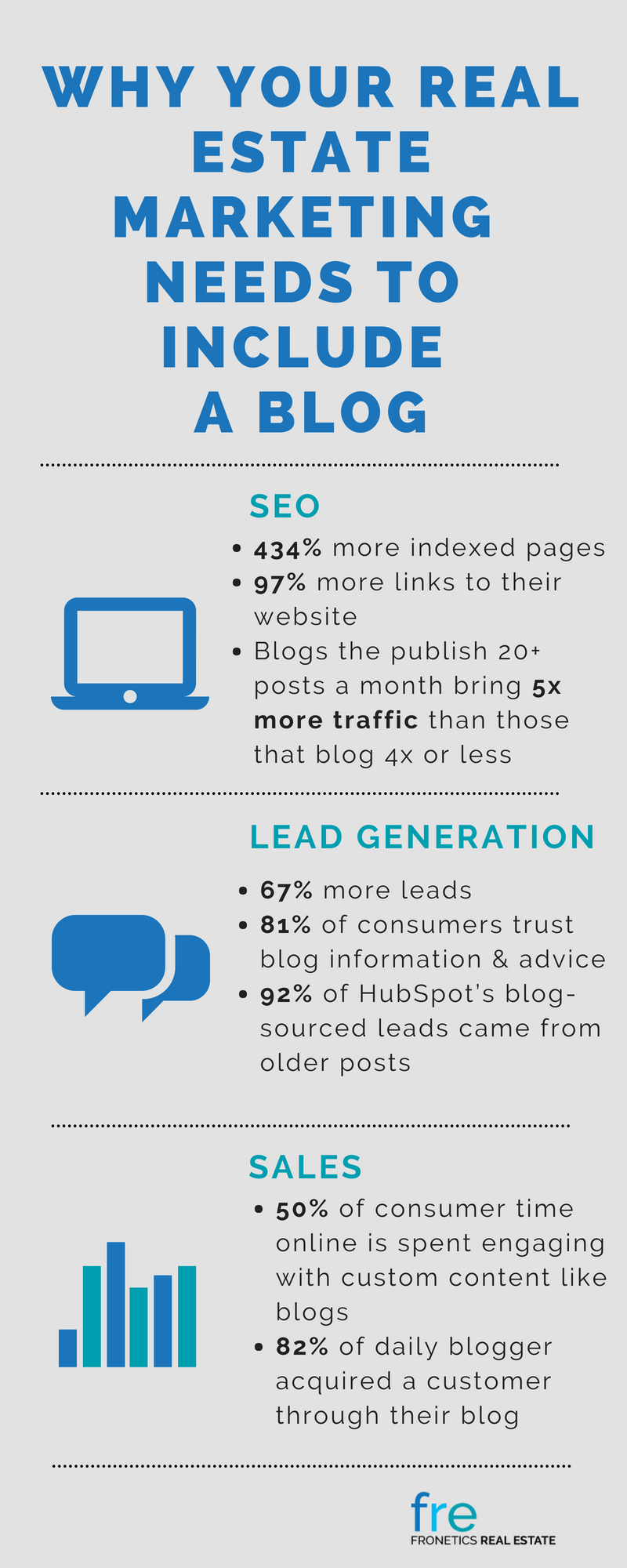Your search results for "C_HCADM_05 aktueller Test, Test VCE-Dumps für SAP Certified Technology Associate - SAP HANA Cloud Provisioning and Administration 👷 Öffnen Sie die Website ➡ www.itzert.com ️⬅️ Suchen Sie 「 C_HCADM_05 」 Kostenloser Download 👌C_HCADM_05 Online Prüfungen"

Why You Should Always Respond to User Reviews
A new study shows companies that respond to user reviews get better ratings overall.
It’s not really news to point out that buyers and renters are likely to consider online reviews when making decisions about properties. In fact, more than 80% of Americans seek a recommendation when making a purchase of any kind.
All this is great for real estate — when the reviews are good. But stay in business long enough, and a few bad reviews are inevitable.
So what do you do when reviews go bad?
A brand new study from Harvard Business Review (HBR) shows that businesses that respond to reviews get better ratings overall. This means that bad reviews don’t necessarily spell disaster — but they do mean that you should incorporate a response plan into your overall marketing strategy.
Replying to reviews is a important part of online reputation management, which is especially crucial in the real estate world, where companies live and die by their reputation.
How does responding to reviews improve your online reputation?
To examine this question, Assistant Professor of Marketing at University of Southern California Marshall School of Business Davide Proserpio and Assistant Professor of Marketing at Boston University Questrom School of Business Giorgos Zervas looked at tens of thousands of hotel reviews and responses from TripAdvisor.
What they found was that “when hotels start responding, they receive 12% more reviews and their ratings increase, on average, by 0.12 stars.” While 0.12 may not seem like a lot, in the scale of TripAdvisor’s 5 star system, where ratings are rounded to the nearest half star, it has a significant impact on customers’ perceptions.
Proserpio and Zervas found that “approximately one-third of the hotels we studied increased their rounded ratings by half a star or more within six months of their first management response.”
Why is it that the hotels started to get more and better reviews when management started responding?
The researchers examined every facet of the data to rule out other factors that would undermine causality, and found that, in fact, “improved ratings can be directly linked to management responses,” rather than improvements made to facilities or services.
To explain it, the researchers make the analogy of eating at your favorite restaurant, and your meal arrives late. You complain to your dinner companions, but when the manager checks in seconds later and asks how everything is, “for a moment, you consider complaining, but instead choose to avoid confrontation and focus on enjoying the rest of your meal.” Essentially, by humanizing your presence on review sites, you discourage potentially awkward online interactions.
The researchers conclude, “While negative reviews are unavoidable, our work shows that managers can actively participate in shaping their firms’ online reputations. By monitoring and responding to reviews, a manager can make sure that when negative reviews come in — as they inevitably will — they can respond constructively and maybe even raise their firm’s rating along the way.”
Related posts:
- Social Media Can Be a Strategic Weapon in Real Estate Marketing
- Using Online Virtual Tours to Sell and Lease Property
- Why You Should Benchmark Real Estate Marketing Against Competitive Properties
Your search results for "C_HCADM_05 aktueller Test, Test VCE-Dumps für SAP Certified Technology Associate - SAP HANA Cloud Provisioning and Administration 👷 Öffnen Sie die Website ➡ www.itzert.com ️⬅️ Suchen Sie 「 C_HCADM_05 」 Kostenloser Download 👌C_HCADM_05 Online Prüfungen"

Push Notifications: Why Real Estate Marketers Need to Start Using Them
Push notifications can help accelerate your digital marketing efforts so that your property gets in front of prospective buyers and renters faster than would happen organically.
Highlights:
- Using push notifications can get your message in front of prospects instantly.
- Websites are now capable of leveraging this technology. Push notifications are delivered to a mobile device or desktop even if the user isn’t on that website.
- Be aware: overly pushy or too frequent notifications can increase user opt-out numbers.
“If you build it, and they will come.” Kevin Costner’s legendary line in “Field of Dreams” could also be said about digital marketing. Or rather, publish quality content, and buyers will come to you. But, digital marketing takes time to show results. There’s not much you can do about that.
Or, is there?
Using push notifications can get your message in front of prospects instantly. Pair quality content with a comprehensive digital marketing strategy, and you will be in a position to drive more traffic to your website, create more brand visibility, and sell or lease more properties.
Don’t believe in the power of push notifications? Here are some undeniable stats to prove it:
- Push notifications boost engagement up to 88%
- 70% of adults enabled push notifications from their favorite brands
- 65% of users return to an app (or website) within 30 days when push is enabled
- The average click rate for push notifications is 7.8%
- 50% of customers find web browser push notifications useful and readily give their permission to the website that they would like to hear from
So, what is a push notification?
A push notification is the delivery of information to a device from a server where the request for the transaction is initiated by the server rather than by an explicit request from the client. What does it all mean? It’s basically a fancy way of saying you can push content to audiences on their phone (or computer), even when they’re not using the device, but there is a caveat — viewers have to opt into these notifications in order to receive them.
And don’t worry if your real estate marketing strategy doesn’t include an app. Websites are now capable of leveraging this technology, called browser push notifications. These types of notifications are delivered to a mobile device or desktop even if the user isn’t on that website. And since Americans look at their phones 52 times a day on average, it gives you a lot of opportunity to get your property in front of them.
Don’t be pushy
Beware of overly pushy or too frequent notifications, which can increase user opt-out numbers. And refrain from using push notifications as a sales pitch. Rather than forcing your properties on users, be the expert advice they are seeking. Help them envision themselves in one of your properties.
According to PushAssist, “sending multiple push notifications can enhance your page views, but won’t boost your sales. It could also result in high bounce rates. Moreover, this may annoy your users and even worse may reduce interest in the products and services you offer.”
Don’t fall into the habit of the “spray and pray” approach when it comes to push notifications. Thoughtlessly bombarding users with generic messaging will not attract quality leads. Instead, be thoughtful and deliberate with your communication. Offer your prospects valuable messaging with a personal touch to encourage action.
If you can successfully navigate push notifications with sharp messaging and timing, your real estate brand can greatly benefit from this digital lead generation tool.
3 benefits of push notifications
1. Increased user engagement
When used wisely as a part of your digital marketing strategy, push notifications can increase user engagement. But remember, it’s quality over quantity. Your notifications should be direct and to the point. They should address the needs of your prospects and encourage open communication. Using push notifications to encourage users to interact with your real estate company helps drive brand awareness and lead generation for your properties.
2. Drive action
Push notifications are an effective way to create a sense of urgency around your property. This urgency, in turn, drives website traffic and increases conversion rates. Try sending messages with an undertone of “act now” on topics such as the latest amenities that buyers can’t live without, local restaurants and activities, and updates on high-demand buying and leasing opportunities.
3. Time efficiency
Let’s face it, writing emails and blog posts is time consuming. Marketers know how much time it takes to research topics and keywords, write the actual copy, and edit, proof-read, and distribute. With push notifications, marketers can quickly and efficiently create messaging that instantly arrives on a user’s phone or desktop, saving hours every week on creating content that may or may not even reach your readers. And since users must opt into push notifications, you have prospects that are genuinely interested in your properties.
Is your real estate brand already using push notifications? Have you seen an increase in web traffic or conversions? We’d love to hear about your experience.
Related posts:
- Marketing Automation for Real Estate Marketers is Key to Lead Generation
- Start Your Property’s Social Media Program in 6 Steps
- 5 Marketing Automation Ideas for Real Estate
Your search results for "C_HCADM_05 aktueller Test, Test VCE-Dumps für SAP Certified Technology Associate - SAP HANA Cloud Provisioning and Administration 👷 Öffnen Sie die Website ➡ www.itzert.com ️⬅️ Suchen Sie 「 C_HCADM_05 」 Kostenloser Download 👌C_HCADM_05 Online Prüfungen"

10 Quick Ways to Grow Brand Awareness
If you want to grow brand awareness, or ensure potential buyers know your property exists, try these strategies.
If you’re building a new property, or just rebranding an old one with a bad reputation, you want to get the word out quickly about what your project is all about. It’s called brand awareness.
For real estate developers and property management companies, brand awareness means that your target buyers (or tenants) know that your property exists. They understand the lifestyle that the property offers.
To grow brand awareness requires a proactive approach. Some companies turn to traditional methods, such as billboards. But it’s important to think about your digital strategy, as well, since the vast majority of real estate research occurs online.
Check out these 10 ways to use content marketing to grow brand awareness quickly.
10 ways to grow brand awareness — fast
1) Establish your brand.
To grow brand awareness, you must first have a brand. This, generally, is the message of your property describing the kind of lifestyle it affords people who live there.
You need concrete creative assets, like a logo and images, and other non-tangibles, like taglines and a defined look and feel. You also need a consistent brand message, which you should develop based on detailed buyer personas laid out as part of the brand-creation process. If you’re selling luxury condos, for example, all of these assets, the tone and voice of your marketing collateral, and even the platforms you decide to participate in should reflect a sense of sophistication and elegance.
Take the time to develop your full brand story, so that you have something (a lifestyle that transcends brick and mortar) to sell to prospective buyers and renters.
2) Start a blog.
You might think that it seems silly to keep up a blog for your property. Who would even want to read it? But a blog can actually help you sell real estate by increasing the amount of traffic search engines send to your website.
The more you publish, the higher you’ll rank with search engines. And every time you publish a blog post, you increase the chances that a user searching the internet for real estate will find your website.
Blogs also help tell your brand story. They help buyers imagine themselves in your space. They nurture leads and build trust among potential buyers. In a recent audit of a client’s website, we found that people who read the blog converted at an almost 30% higher rate than other web traffic. That’s significant.
3) Become a resource.
Bear with me on this one. But I’ve seen this work many, many times.
Content marketing is all about being a trusted resource for your audience. Ditch the blatant sales pitch in your content and think about how you can help your target buyers instead.
Offer guidance on purchasing a home, information about your property’s neighborhood, or tips on upcoming events in the area. You’ll build trust with your current audience and provide them with content they’re more likely to share with their friends and followers. And that is how you grow brand awareness.
4) Make sharing easy.
This is a great way to let your successes go to work for you. Make it easy for your audience and followers to share your content with their networks. Give them sharing options for email, social media — heck, put share links on anything and everything. Social media is a powerful tool in selling real estate. Don’t underuse it.
5) Start content partnerships.
Again, this is all about leveraging other people’s audiences to spread the word about your property and brand.
Reach out to local real estate media sites and blogs to see if you can author a post for them. See if a local interior designer or financial planning professional would like to write a guest-post series for your blog, and ask them to share it on their social media accounts. Basically, create two-way content partnerships where you will ensure that your brand’s name will come across the screens of an influencer’s audiences.
6) Partner with local businesses.
By its nature, real estate is a location-oriented industry. You can partner with businesses in your area to hold seminars or festivals, sponsor sports teams, and donate to charity events.
This works in the digital world as well. On social media, promote the opening of new neighborhood restaurants, and congratulate nearby businesses when they win local best-of awards. Join online charity challenges to support local causes. Build your digital network of local businesses and organizations so that your brand becomes synonymous with the neighborhood wherever locals browse online.
7) Hold social media contests.
Everybody loves to win a contest. Use your social media platforms to create contests in which followers submit a photo or video, and let other users vote for their favorites. Contestants will share the link with their networks, and your brand awareness grows exponentially.
8) Try paid social advertising.
Facebook and Twitter ads are relatively cheap, and both platforms do a great job of making sure your content gets to your target audience. You can set metrics, and customize your preferences for targeted audience in a huge variety of ways.
9) Leverage influencer marketing.
Think beyond buyers themselves. Who influences them when it comes to making major purchases? Beyond family, financial professionals, interior designers, and, of course, brokers represent strong spheres of influence in the real estate space.
Create targeted campaigns to reach these influencers via email, social media, and digital advertising. Getting your name in front of them is one step in the direction of getting your brand on potential buyers’ minds.
10) Get visual with your content.
I mentioned blogging before as an excellent way to drive traffic to your website. But don’t stop with just words.
Virtual tours, infographics, videos, and other highly visual media are not only great for engaging your current audience. They’re also more likely to be shared by your followers with their networks. Again, when people share your content, you grow brand awareness.
How do you grow brand awareness for your properties?
Related posts:
- 4 Ways a Blog Can Help You Sell Real Estate
- Social Media Trends for 2018 Real Estate Marketers Need to Know
- What Metrics Should You Track in Real Estate Marketing?
Your search results for "C_HCADM_05 aktueller Test, Test VCE-Dumps für SAP Certified Technology Associate - SAP HANA Cloud Provisioning and Administration 👷 Öffnen Sie die Website ➡ www.itzert.com ️⬅️ Suchen Sie 「 C_HCADM_05 」 Kostenloser Download 👌C_HCADM_05 Online Prüfungen"

Infographic: Statistics that Prove Why Your Real Estate Marketing Needs to Include a Blog
If you’re a real estate marketer who’s not blogging, you’re missing out.
Everyone knows you need a property website to succeed in this industry. But when it comes to making that website competitive, many abandon the brightest idea that would help them in doing so — namely, blogging.
Real estate blogging does its bit for lead generation, SEO, and sales. So if you think your property can thrive without it, you might want to think again.
Search engine visibility
As search engine algorithms get increasingly complex and sophisticated, the quality of your website’s content becomes more and more important. It’s your content that informs search engines about your site (not just keywords anymore), improving your rank in relevant search queries. And the stats bear it out — according to HubSpot, companies that blog receive 434% more indexed pages on average and 97% more links to their website.
Another fact to consider: according to a recent study by Search Metrics, the average word count of the highest ranking content in Google is between 1,140-1,285 words. In other words, long-form content, like blog posts, is one of the best things you can do to improve your website’s SEO.
But don’t be fooled into thinking that quantity outranks quality. Simply pumping out a high word count isn’t enough. Your content needs to be well-written, thoroughly researched, and engaging.
Lead generation
Blog content is ideal to share (and link to) in email or social media marketing campaigns. It can help undecided leads learn about your properties and sway them in a positive direction. Sharing your blog posts on your social media accounts helps give validity and authority to your company, as you disseminate content you created yourself.
A recent study from the Content Marketing Institute found that 67% more leads are generated by companies with an active blog. Not only that, 81% of U.S. online consumers trust information and advice from blogs. So your blog is your best bet in terms of becoming a trusted resource for your audience — leading directly to more effective lead generation and nurturing.
Sales and relationships
61% of buyers report feeling better about a company that delivers custom content and are therefore more likely to buy from that company. And furthermore, HubSpot reports that 50% of consumer time online is spent engaging with custom content — like blogs. And perhaps most powerfully, 82% of marketers who blog daily acquired a customer using their blog, as opposed to 57% of marketers who blog monthly. Blogging helps you sell real estate, and it helps you build lasting and fruitful relationships with your audience.
Check out our infographic for statistics on why your real estate marketing strategy should include blogging.
Infographic: Why your real estate marketing should include a blog
Related posts:
- 4 Ways a Blog Can Help You Sell Real Estate
- Drive More Traffic and Generate More Leads with Your Real Estate Blog with our Editorial Calendar Template
- Fronetics Real Estate Blog Named Top 60 Real Estate Marketing Blog
Your search results for "C_HCADM_05 aktueller Test, Test VCE-Dumps für SAP Certified Technology Associate - SAP HANA Cloud Provisioning and Administration 👷 Öffnen Sie die Website ➡ www.itzert.com ️⬅️ Suchen Sie 「 C_HCADM_05 」 Kostenloser Download 👌C_HCADM_05 Online Prüfungen"

5 Benefits of a Real Estate Blog
Having a real estate blog is a cost-effective and efficient way to grow your brand. Here are 5 benefits of maintaining an informative, valuable blog.
Highlights:
- Blogs provide real estate brands the opportunity to educate, inform, and even entertain readers through content.
- 81% of U.S. online consumers trust information and advice from blogs
- 80% of our website traffic comes from blog posts that are over six months old.
We get asked all the time, “Do I really need a real estate blog?” And the answer is: yes! The follow up question is “Why?” And the answer is simple: it works!
On a basic level, blogs provide brands the opportunity to educate, inform, and even entertain readers through content. They are an effective and relatively cheap tool to help grow your real estate brand. Search engines even consider blogs—and blogging frequency—when ranking pages.
I often tell our real estate clients to think of blog posts as opportunities. Every time you post, you create a chance to be found, to be liked, to be shared, and to be linked to other sites.
Still not convinced? Here are 5 of the top benefits of having a real estate blog.
5 benefits of a real estate blog
1. Get more traffic to your website
According to HubSpot, companies who blog receive 97% more links to their website than non-blogging companies. Not only that, but 81% of U.S. online consumers trust information and advice from blogs. These stats highlight how a blog can help your brand become a trusted resource for your audience—resulting in more website traffic and increased leads.
2. More visibility in search results
Search engine algorithms are getting more and more sophisticated. As they do, your site’s content becomes increasingly important.
Your content helps inform search engines about your site, improving your rank in relevant search queries (people who are searching for properties or real estate companies like yours). As you choose content for your blog posts, be mindful of the search topics for which you want to rank highly. Every time you publish a post, you create a new chance to reach someone looking for a property like yours.
3. More engagement on social media
Blog content is ideal to share (and link to) social media marketing campaigns. It can help undecided leads learn about your properties and sway them in a positive direction. Sharing your blog posts on your social media accounts helps give validity and authority to your company, as you disseminate content you created yourself.
4. Establishesyour industry expertise
When you blog about topics you are confident and knowledgeable about, it shows. You set yourself up as an industry expert. Create posts about the latest real estate trends, best practices, and neighborhood and community events to showcase your market knowledge. Your posts will be helping inform readers, while also establishing your brand as an industry expert.
5. Works even when you aren’t
Did you know that is takes up to two years for a blog post to see 99% of its impressions. In fact, we find that 80% of our website traffic comes from blog posts that are over six months old.
Why is that? Because, as with many things, blog posts improve with age and continue working even when you aren’t. Search engines give value to older content that has had more time to accumulate social shares, likes, and referrals from other web pages. The more relevant a blog post proves itself to be to readers over time, the higher it will rank in search engine results.
You hardly need more convincing, right?
Related posts:





